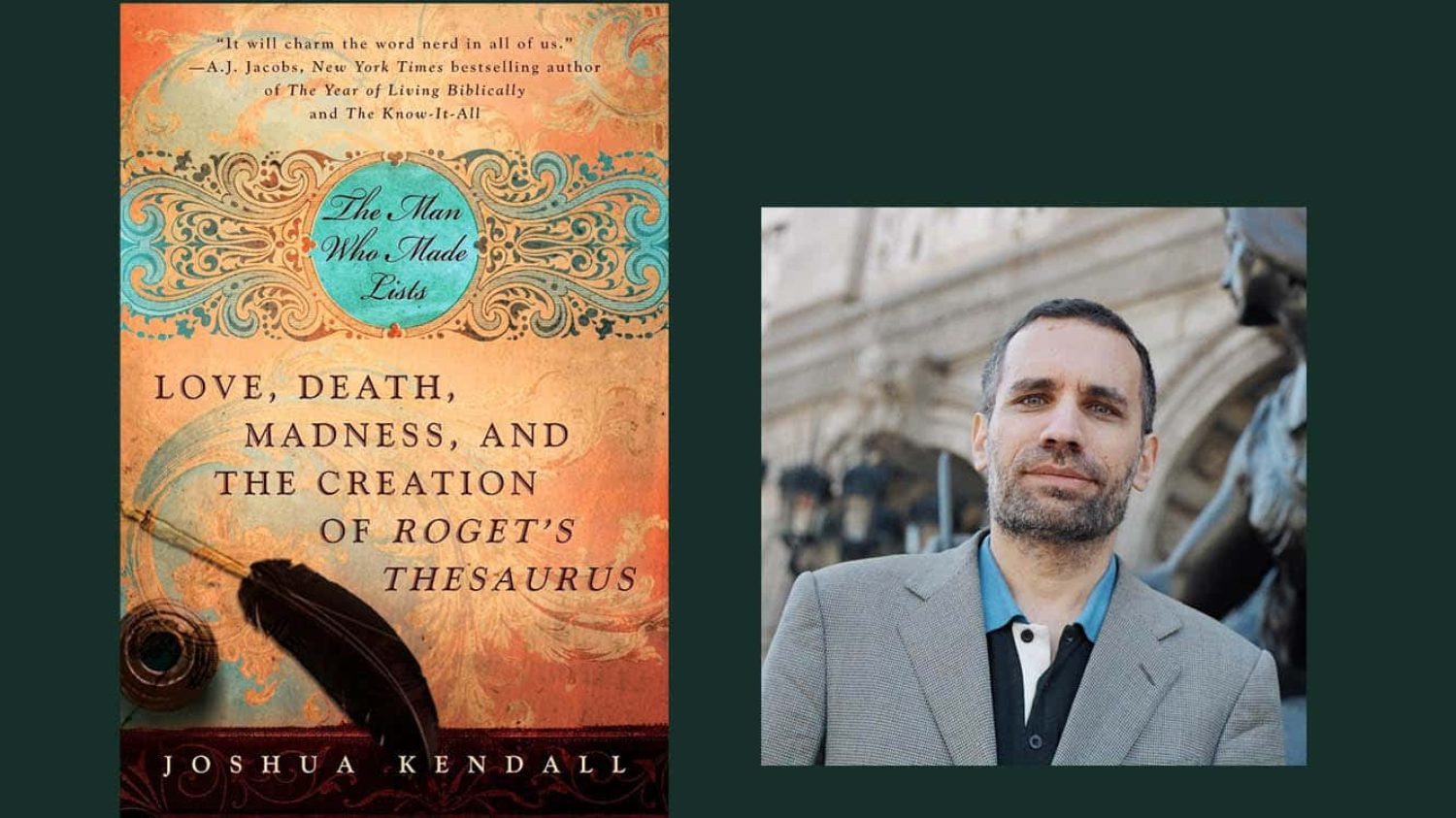As someone who loves making lists, I couldn’t help but be attracted by the title of the following book, The Man Who Made Lists: Love, Death, Madness, and the Creation of Roget’s Thesaurus by Joshua Kendall. Peter Mark Roget, a doctor, scientist and lexicographer, came up with the idea of a book of synonyms in 1805, although the book was only first published in 1852. His aim was to help those struggling with the challenges of composition by providing useful varieties of words. It became one of the most recognisable books in the English language and has sold about forty million copies.
The book is a biography of Peter Roget (his family had Huguenot origins), born in London in 1779, died 1869, who had a difficult childhood with the early death of his father and the attentions of a suffocating mother. His response to the challenge was to make lists – lists of plants, lists of deaths that meant a lot to him, lists of Latin words. He began his Thesaurus while working as a physician, but set to finishing it once he retired. After four years of almost incessant work, it was ready to go out into the world. The book became a muse for those who love words – J.M. Barrie informs his readers in Peter Pan that Captain Hook cannot be all bad because he has Roget’s Thesaurus on his bookshelf, while Syliva Plath, Ted Hughes, Dylan Thomas, and many more have kept it close to aid the creative process. The book was a monumental gift to posterity!
This was a most intriguing book and I learned a lot from it. My own list-making obsession seems very mild in comparison with Roget’s, and I was left in awe of his achievement.
How often do you turn to a Thesaurus? I can’t imagine not having one at my fingertips. Are you a list-maker? Tell me your thoughts by leaving a comment.
The Man Who Made Lists by Joshua Kendall
Roget’s Thesaurus of English Words And Phrases by George Davidson
Project Gutenberg: Roget’s Thesaurus.
Susannah Fullerton: Roget’s Thesaurus is first published
Susannah Fullerton: Lost Boys and Lost Girls
Thesaurus.com
Order from Tragedy: Roget and the Origin of The First Thesaurus
Joshua C. Kendall

Ann Hodgens
Thank you for recommending this book which I have just finished and enjoyed reading.
I have a copy of Rogets Thesaurus and now have a better understanding of the arrangement of words and how to use it!
I was able to borrow the book on inter library loan through my local library and it has helped me finished a project I started many years ago.
Susannah Fullerton
I am so glad you enjoyed it. It made me look more closely at the Thesaurus and appreciate what a major task he had with all those word lists.
Happy New Year and may 2024 be full of good books.
Helen Mary Jakobi
My Roget’s is probably the most thumbed-through, annotated book, pored-over tome on my book shelf. I was a copywriter in an ad agency and not a day went by that I didn’t ask Roget for help 🙂
Susannah Fullerton
Wouldn’t Mr Roget be pleased to know his book is still proving so useful!
Merrowyn Deacon
Dear Susannah This looks like a great Xmas present. Hester Piozzi also wrote a Thesaurus and called it ” British Synonomy”. Worth checking out if you can get hold of it. She also has proper English ways of expressing things, e.g. she took issue with Fanny Burney,whose heriones always descended down to breakfast or whatever, whereas in English they would go down to breakfast. This still obtains in English hotels and B & Bs where breakfast is always served in a basement or in posh hotels, somewhere out of the way of the main entrance. 🤔 Personally, I couldn’t exist without lists and 2 printed diaries. We hope to see you again at the Johnson Society. I was very impressed by your Fleeman Lecture last year. This year we had an excellent lecture on food & how it was used to convey wealth and power etc. No wonder the peasants revolted.
Merrowyn.